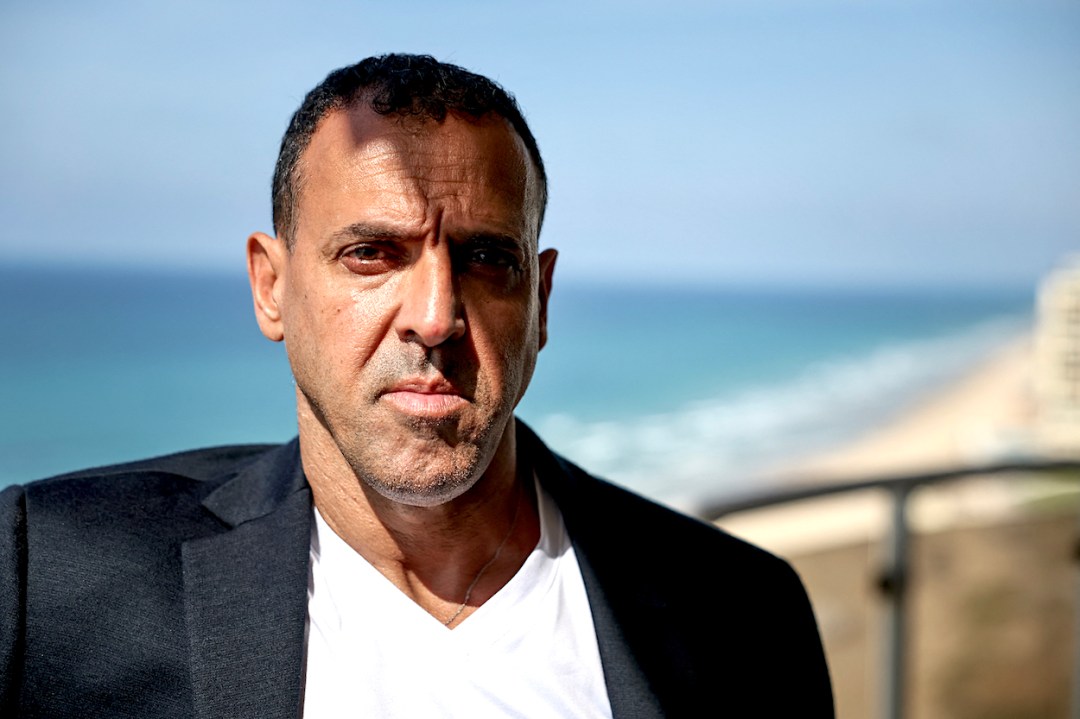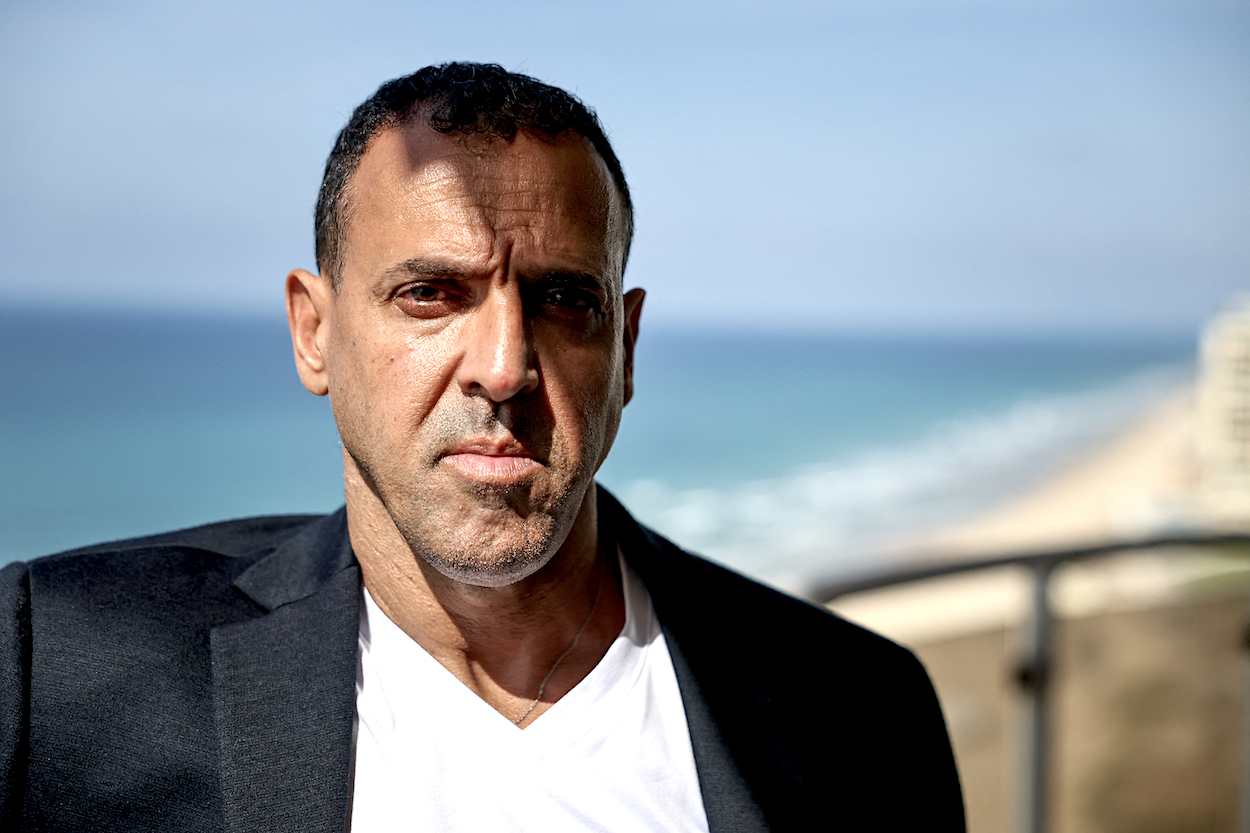Now that the remaining live hostages have been freed, and the remains of those killed are slowly being located and returned to their families, we can think more on the details, the testimonies, and the traumas which we couldn’t fully comprehend as the war raged within our minds.
Those former hostages now search for recovery and familiarity back home, as they emerge into a world vastly and for ever changed. The same is true for those of us who have never spent a day in a filthy, airless Palestinian tunnel. We didn’t experience the fear, the violence, the hunger or the torture they did. But our world, too, has shifted on its axis, jolted into a different rotation. It will never be the same again.
I started reading Hostage, Eli Sharabi’s account of his time in captivity in Gaza, on Yom Kippur. I wouldn’t usually read books during the synagogue service, but something about this one felt urgent, and somehow appropriate for the setting. So over the 25-hour fast, I allowed my mind to drift from the familiar prayers and confessions of our holiest day and into the dark, hellish tunnels of Gaza.
I arrived that morning for the start of a full day of prayer, repentance and introspection, only to hear the news of the jihadist attack by a Muslim terrorist in Manchester which resulted in the death of two British Jews. The news filtered round the synagogue, and round the country, giving new impetus to our prayers. Meanwhile, I read Sharabi’s words, and absorbed the ancient prayers of our people to inscribe us anew in the book of life, as I sat in the sanctuary where I have worshipped since my birth. Sitting in my late father’s seat, I felt both his presence and his absence. He had survived the Holocaust as a child, hidden in a Catholic orphanage in Italy. With all this heavy sentiment surrounding me, Sharabi’s searingly honest and crystal clear testimony felt all the more emotionally charged.
Sharabi is a survivor of our era’s Nazis – the Islamic Palestinian terrorists of Gaza. His words cleaved through and into me like a laser beam, directly targeting the part of my mind connected to centuries of persecution and survival, his account burning into me a sense of my place in the continuum of the shared existence of my people. Like him, I became a link in a chain from past to future. A modern Primo Levi, he made me question with every word and every page the banality of evil, the brutality of man. The hunger, the torture, the violence, the dirt, the despair – all of it unthinkable yet masterfully conjured in his careful and measured words. His account, so simply written, so engagingly dry, so unpretentious and deeply honest, commands attention.
I finished the book two and a half weeks later, during a flight back to London from Israel, just after the final living hostages cruelly tortured by the Palestinians had been released. Its closing chapters dealt with Sharabi’s release in a tense and carefully stage-managed deal brokered with the terrorists. If Yom Kippur and the Manchester terrorist attack had resonated with his account of captivity, the tentative end of two years of war did the same for the account of his release. The Israel I was leaving was one itself emerging from the depths of despair after two years of solid war and painful loss. Sharabi’s release was bitter sweet as he tasted freedom but learnt of loss, his wife, two daughters, brother and friends all murdered. So too his country seemed to have breathed a collective sign of relief following the Trump brokered ceasefire, only now to turn inwards and start a long journey of recovery and mourning.
Survivor accounts are special. I have always cherished the occasional opportunities I’ve had to meet survivors of the Holocaust. Their accounts are vital, urgent, raw. Each one has taught me something direct and universal about humanity and about an era slipping ever further into history and out of memory. Like most Jews today, I had never expected to hear from so many survivors of another epic, brutal, savage attack on our people which would unfold in my own lifetime. The 7 October Palestinian attack became the horror my generation will never forget, the trauma we will carry for ever. The warning to our people and the world which we will never stop talking about. And Sharabi became its first narrator of the hostage experience.
From the underground environment with its stinking toilets and sparse, rotten food, to the fear and physical pain of the psychological and bodily torture, he lays it all out for us to know: the way they beat him, the cruelty of each individual, as well as their collective ideology, their sadism, their faith, and their barbarity. He introduces us to their fears and insecurities, but never once leaves any doubt about how he felt towards them. From his book, they get exactly what they deserve: each portrait of his sick torturers and guards reveals their pathetic evil, tragic ignorance and heartless brutality.
Most of us will never feel what Sharabi felt
On one Yom Hashoah during the 7 October war, I met an old lady who shared her Holocaust story: the camps, the murders, her eventual liberation. She still cries when she tells the story. She gets nightmares in the days running up to such events. But this time she told me she thinks it was time she passed the baton on to a new generation of survivors, for them to share their experiences. Their story, set in full colour, streamed and shared, is taking place right now, and to her it feels more urgent. What a thought.
Most of us will never feel what Sharabi felt. Yet in our own smaller way, we are all, each of us, emerging from the tunnels of despair and human misery created by the same beasts who imprisoned him. And we must all adapt to survive in this new landscape, weakened by our grief for those and that which we have lost, and emboldened by what we must protect and cherish. Eli Sharabi didn’t ask to become the warning voice of our generation. But through this account of his captivity, he shares with us a vital message of sorrow, resilience, and survival.









Comments